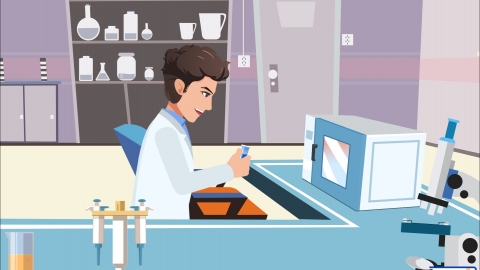What does an elevated CRP level indicate?
Generally, elevated CRP levels may be caused by factors such as strenuous exercise, pregnancy, acute tonsillitis, acute gastroenteritis, and acute cholecystitis. It is recommended to seek timely medical attention to determine the underlying cause and receive appropriate treatment under a doctor's guidance. Detailed explanations are as follows:

1. Strenuous exercise: After high-intensity or prolonged physical activity, minor muscle damage may occur, triggering a temporary inflammatory response that causes a mild increase in CRP. No special intervention is required in such cases. Allow the body adequate rest after stopping the activity, avoid strenuous exercise for a short period, and CRP levels usually return to normal within 1-2 days.
2. Pregnancy: Hormonal changes during pregnancy may mildly activate the immune system, potentially leading to a slight elevation in CRP. If CRP is the only abnormality and no other discomfort is present, no specific treatment is needed. Regular prenatal checkups, monitoring of physical indicators, maintaining regular sleep patterns, and a balanced diet are sufficient.
3. Acute tonsillitis: Often caused by bacterial infections such as hemolytic streptococcus or staphylococcus, inflammation of the tonsils leads to elevated CRP levels, commonly accompanied by symptoms like sore throat, fever, and swollen tonsils. Patients may take medications such as amoxicillin capsules, cefuroxime axetil tablets, or Pudi Lan Xiao Yan tablets as directed by a physician to alleviate symptoms.
4. Acute gastroenteritis: Ingestion of contaminated food may lead to bacterial infections of the gastrointestinal mucosa caused by pathogens such as Escherichia coli or Salmonella, triggering inflammation and elevated CRP levels, often accompanied by abdominal pain, diarrhea, vomiting, and other symptoms. Patients may take medications such as norfloxacin capsules, montmorillonite powder, or berberine hydrochloride tablets as directed by a physician to reduce inflammation.
5. Acute cholecystitis: Acute inflammation of the gallbladder caused by obstruction of the cystic duct or bacterial infection leads to significantly elevated CRP levels, accompanied by symptoms such as right upper abdominal pain, nausea, and fever. For mild symptoms, treatment may include medications such as cefoperazone sodium and sulbactam sodium injection, ursodeoxycholic acid capsules, or racemic scopolamine tablets as directed by a physician.
In daily life, it is important to maintain a regular routine, avoid excessive fatigue, eat清淡 and hygienic meals, and reduce the risk of bacterial infections. Engage in moderate-intensity exercise and avoid sudden high-intensity workouts to maintain a stable physical condition.





